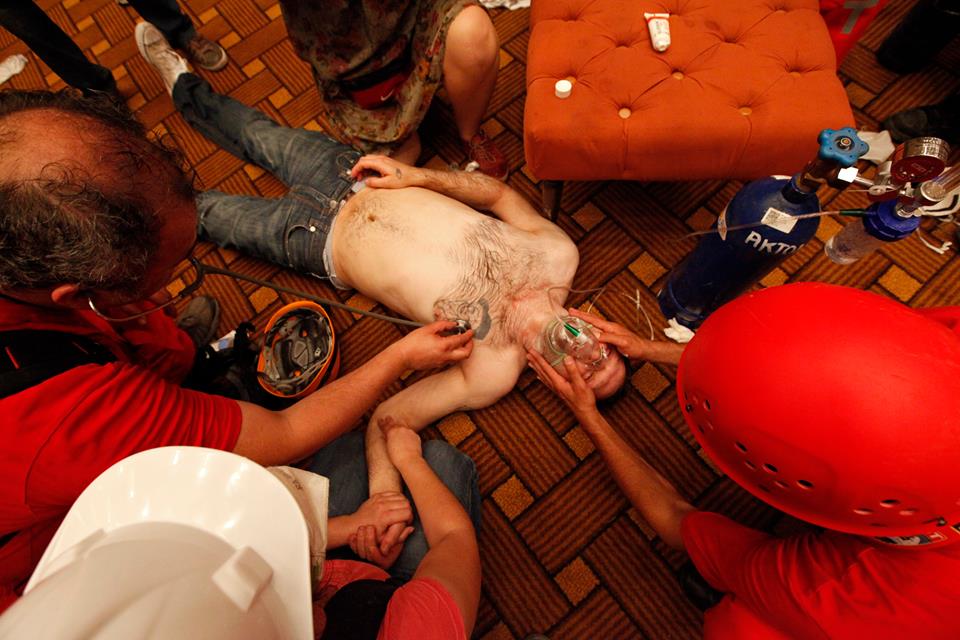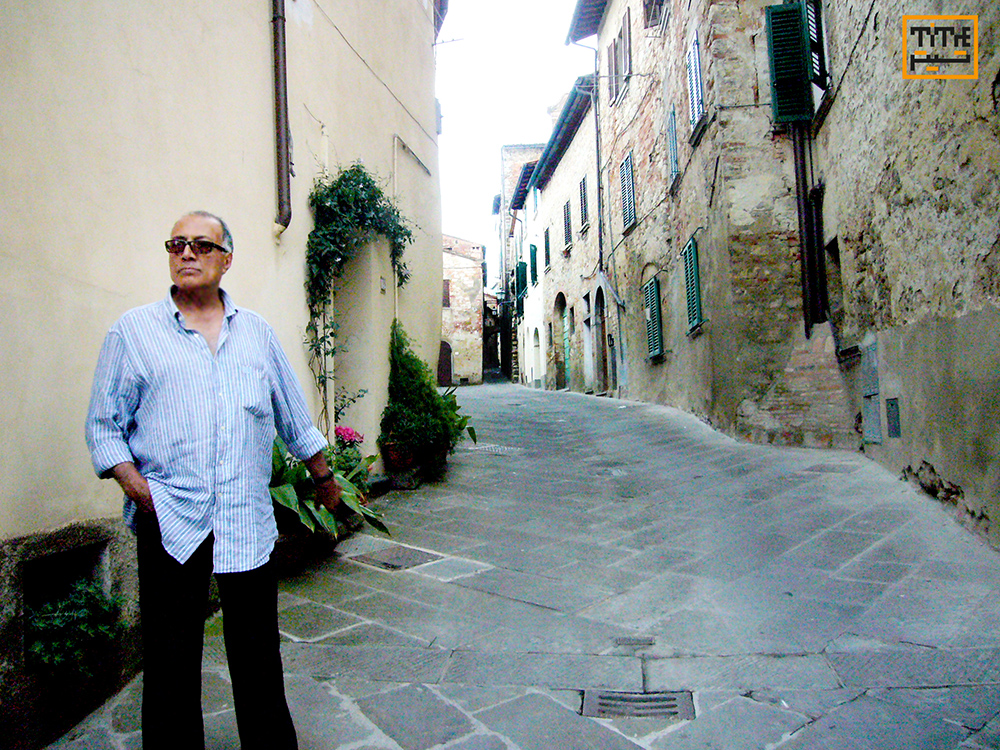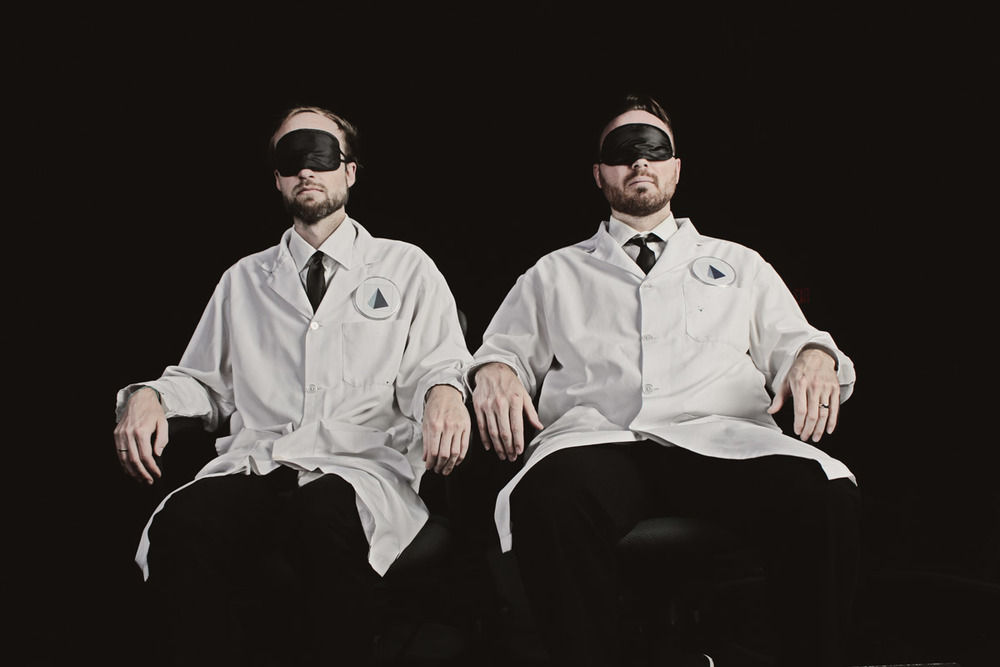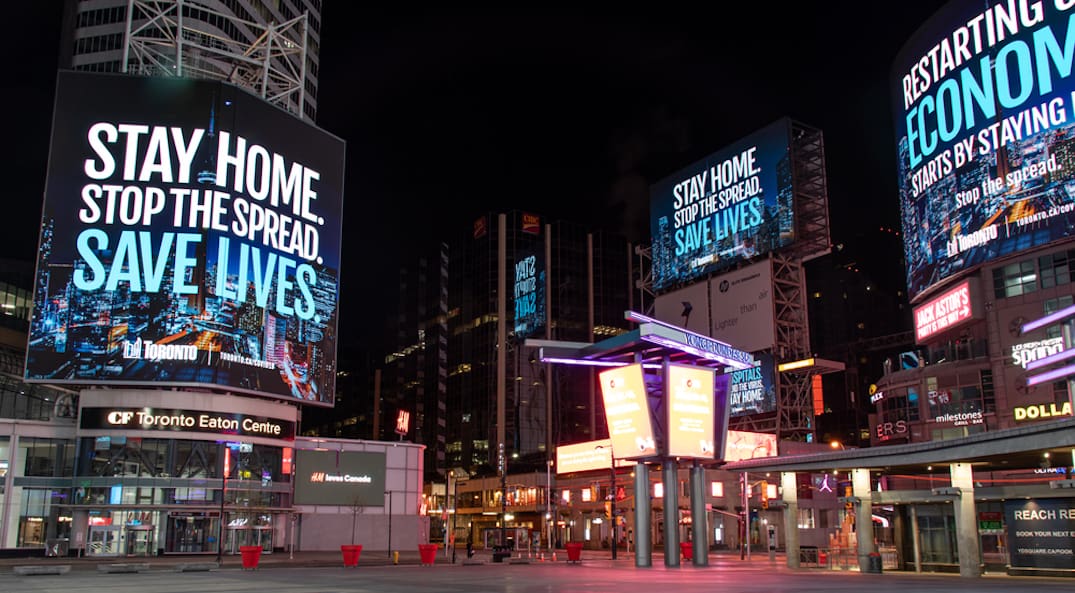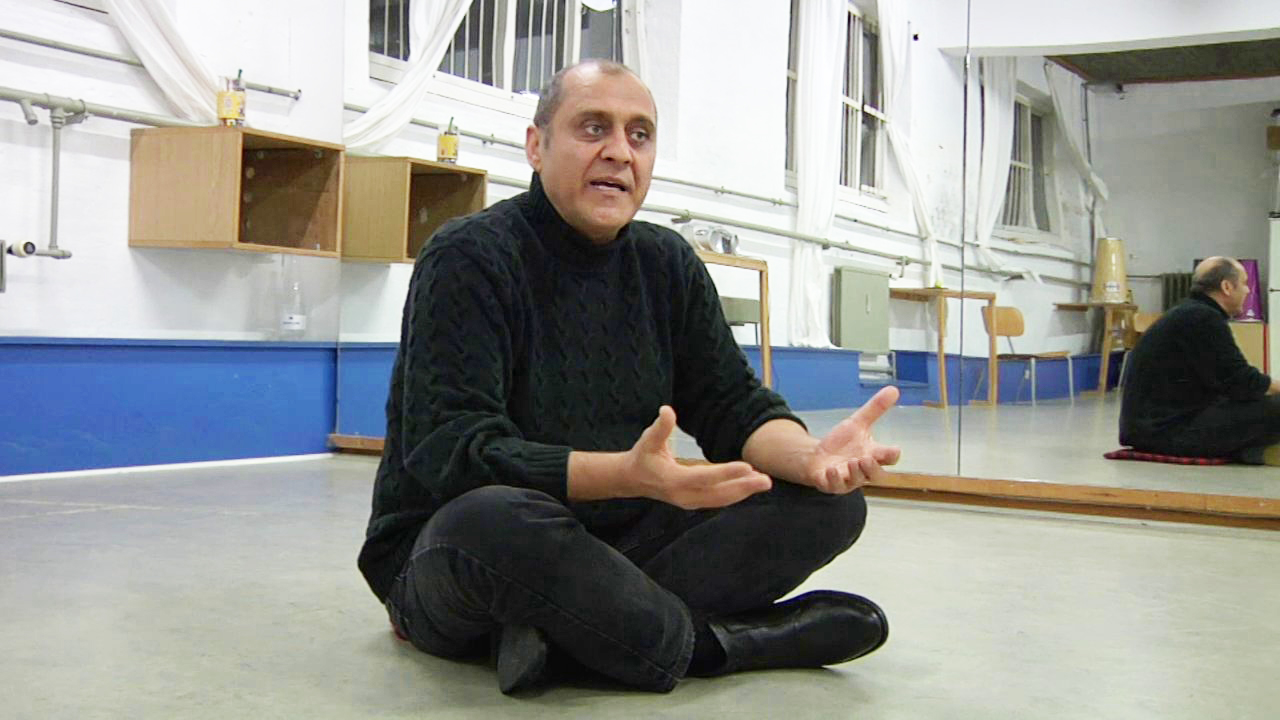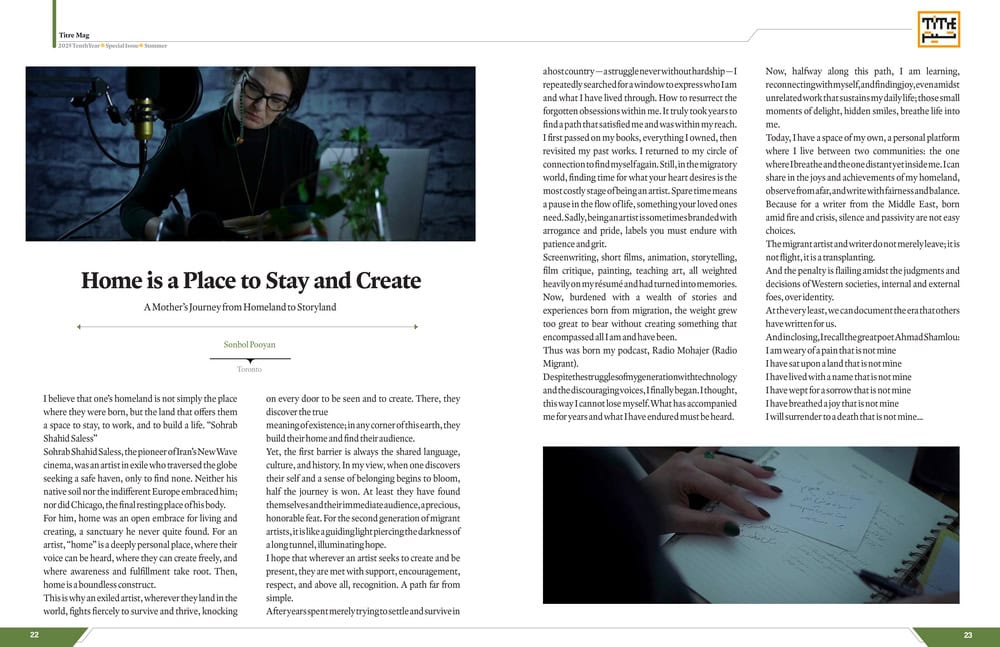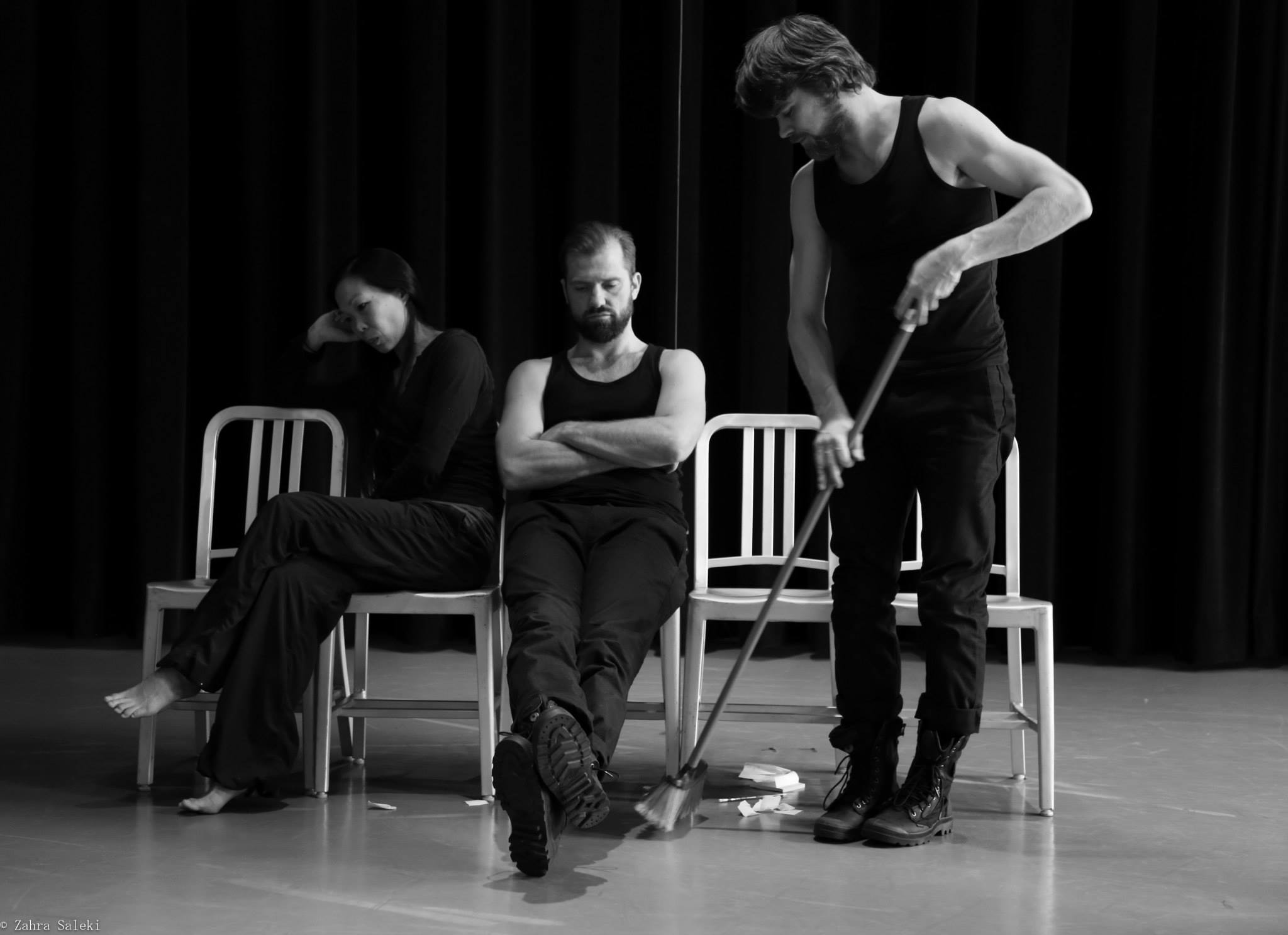
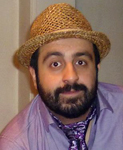
پویان طباطبایی
Pooyan Tabatabaei
Toronto – March 2014
- Jannik Elkær Nielsen is choreographer, body coach and dancer. He is co-founder and artistic director of the Company Don*Gnu in co-operation with Kristoffer Pedersen. Nielsen choreographed for Roskilde Festival, The Danish Nationalmuseum, Gladsaxe & Glostrup Musicschool, Filmværkstedet between 1998 and 2006. His teaching experience concerns development of the concept ‘Leading in Motion’ (LiM) an experience-based body technique based on physical exercises, providing practical experiences of theoretical leadership and communication perspectives. He has collaborated in the “Forgiveness” project as a performer.
Janni, please tell me how you met Soheil Parsa? And how you joined “Forgivness” project from another continent?
My name is Jannik Elkaer and I live in Denmark, more closely in Copenhagen, where I have a Company called Don*Gnu . I work with physical theater, dance and film – together with my colleague Kristoffer L.A. Pedersen who is from Aarhus. We have been working together for 10 years and founded the company 3 years ago.
Two years ago, Babara (the Danish dramaturge from the piece), told us about the Canadian company Modern Times, and that she had recommended us to a project they were doing.
We didn’t know anything about what was happening in Canada or who this Modern Times company was, and at the same time we were really busy with our own productions, so it was a bit difficult to find the time to meet. But we were very intrigued by both the collaborative work and the theme of Forgiveness, so it ended up that we found a week during the holidays where they came to Denmark for a week-long workshop.
I’m personally very inspired and intrigued by cultures that are different than my own. So just that Soheil is from a different culture, and is living in a different culture than his own and probably had a totally other approach to theatre and communication than my own was intriguing. For me, artistic work is about challenging your own language/expression and confronting your own discourse, so you don’t get stuck in one way of seeing the world and yourself in it.
Denmark is a very small country, population of around 5.6 million, so it’s probably very easy to find a common discourse in such small groups and stay fixed in that. So for me it is very important to open the borders artistically and challenge oneself.
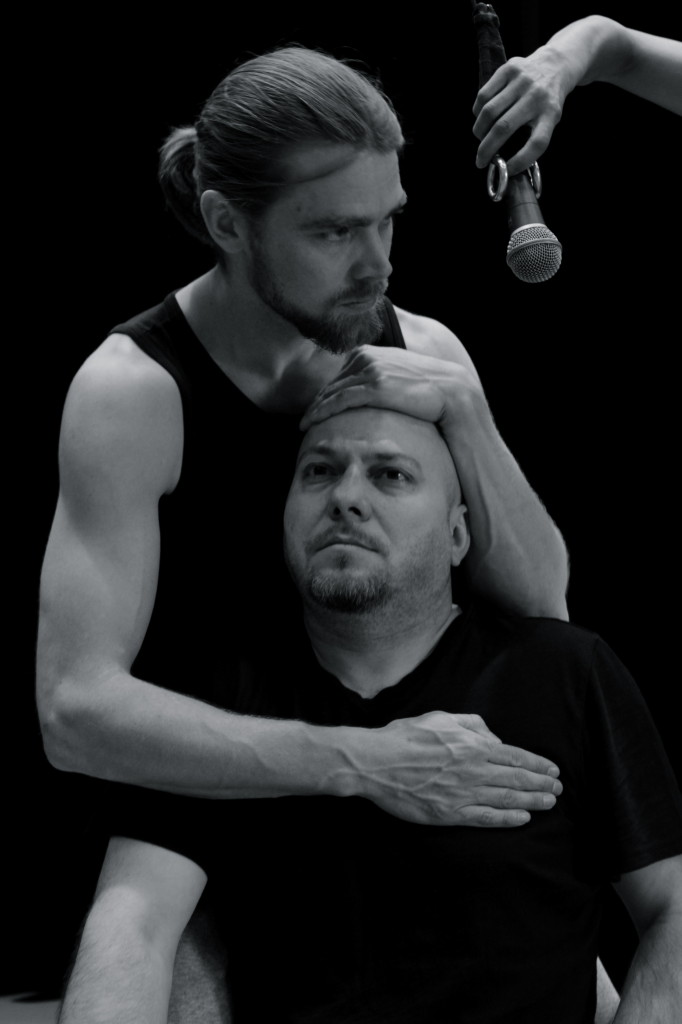
Forgiveness
What was your take on the word of “Forgiveness”, before you start this project?
Forgiveness was not a word I spend much time thinking about before this project. This does not mean that I was not forgiving of people or didn’t wish to be forgiven myself, but I just never really had any big reflections on the word. I actually don’t think I had any big struggles to forgive people around me, but maybe my biggest issue was forgiving myself. And in a way, I started to think that you need to forgive yourself before you can really forgive others. Because it’s like, you have to accept that you have the potential of all the mistakes and evilness in yourself and you have to forgive that before you can really forgive other people for it.
What’s the impact of the “Forgiveness” – this project – in your life? Or how do you apply forgiveness in your personal life these days?
I began to think more consciously about it and began to implement the concept of forgiveness in my daily life after we started this project, for example I started to think/meditate on forgiveness every morning. In the beginning it felt strange and a bit holy (meant in a not good, new age way). But after letting go of all the pre-conceived ideas of what forgiveness is, it became easier and more pleasant. It appeared to me that the concept of forgiveness is not a static concept, on which draw a definitive conclusion. After I begun to reflect on it, I stared to see it more like a dynamic concept, and a realization of how important it is to reflect on it and flesh it out in daily life.
I started to find the question “is forgiveness possibly less important?”
Forgiveness for me starts to be a necessity in order to live a free and progressive life. Forgiveness is not a final conclusion where you are letting everything go; I think it’s a choice you have to make. It’s a choice of seeing that as a human being we have the potential of all evilness and good in all of us, so I can see the person I forgive in myself. I don’t say that everybody should be forgiven right away; it depends on the situation and the people etc. But to forgive is a way to let yourself go and don’t get stuck in the past. It’s a choice of choosing the best circumstances for yourself and the people around you to live the best you can hear and now.
In a way forgiveness for me, is just a construct based on the concept of good and bad. But look at nature – it’s not good or bad, things live and things die, there are big natural catastrophes, but it’s not evil, it’s just how it is, so nothing to forgive. We maybe should accept and understand the consequences of different actions and choices?
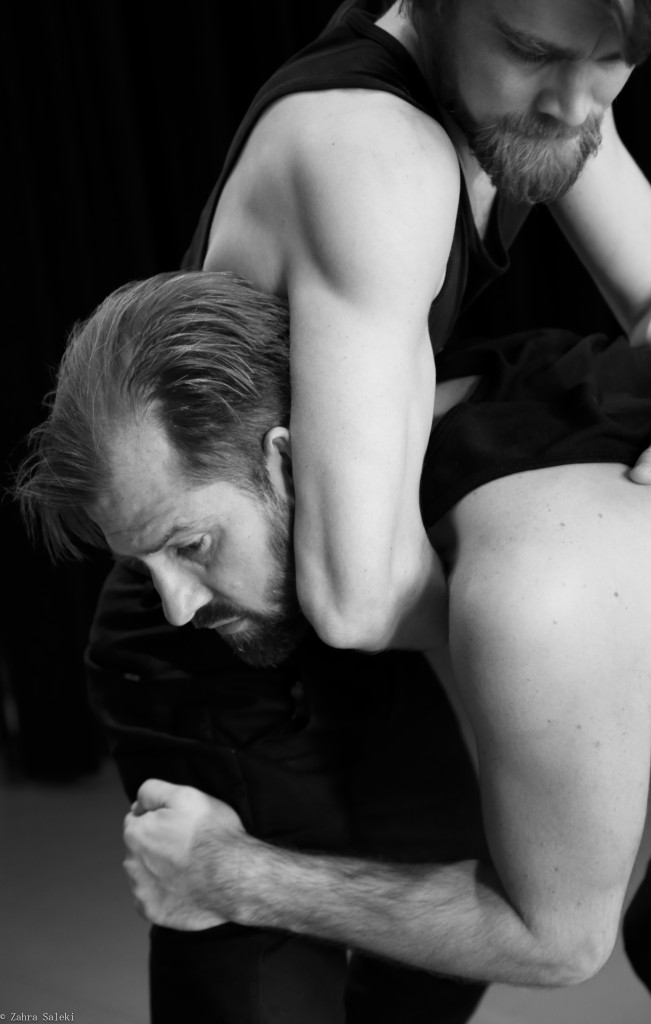
Forgiveness
Are you satisfied with your performance? How much you were succeeding to pass the message of this piece through your movements?
Both yes and no. I think we got to a very interesting place movement-wise. But it’s very complex theme forgiveness, with a lot of paradox hidden in it. I think that movement and physical expression has a way to deal with things and allow for more paradox and complexity in the same time.
Compared to the spoken word which speaks more to our intellect and our logic understanding and often position themselves in the one or the other direction – then movement can easier to deal with the paradox and the opposing energies. It’s closer to our nature and subconsciously perception. I think that in the last dance scene with the doctor and his dilemma of operating a war criminal is getting closer to a dilemma of being human, struggling with diverse forces and not knowing what to do – yet still letting this energy and communication between those two individuals expand and be explored without giving a final conclusion. Because it’s a question we need to keep on asking and maybe never will be able to answer full out, because it will always be the process of it – there will be more important.
For the work in general, I think we could have pushed it much further with the dynamic and the physicality of the performance. But the process didn’t allowed it, because we had to meet and create the language between different artistically views and that created a limitation on how far we could go. In retrospect, this challenge is maybe the most important of the piece, because it illuminated ego problems that maybe are the reason for a lot of misinterpretations in life. And I think that forgiveness has a lot to do with getting rid of your ego limitations and proudness. The differences had to meet and we had to go through things we couldn’t accept aesthetically and still keep the open heart, shows a very urgent necessity of forgiveness in the moment. And I think Theatre is the art of the moment, so a very important dilemma to have and explore in the piece.
Since I do not see forgiveness as an individual thing, but more like a relational creation and acceptance of the status quo, we will continue to develop in touch with the audience and each other in the performing team. I think we just touched a corner of the topic and it will be a continuous development of our self and the piece.
You have grown up and lived in a very peaceful country, far from conflicts and war. I assume you didn’t lose any family or friend through war. So tell me how you adopt yourself deeply in your character?
It is true that I have lived in a peaceful country and haven’t lost any family. But what I see in this production is that we go from the micro perspective to the macro perspective. For me, you have to understand the small things to understand the big things. For example, to play the scene of the Nazi guard asking the Jewish prisoner for forgiveness, this is of course a very big event, but at the same time in the past I have tried to ask for forgiveness from people for wrongs I have done– the core is the same. This is the way I think of forgiveness– to be able to forgive someone who does something bad, you have to see the same possibilities in yourself to commit the same action. I think if you work with this philosophical reflection, it makes it possible to relate to all the good and bad in humanity. We all have a Nazi in ourselves, and it is really important to remember that, because there is always the possibility to happen again.
No borders or flags, just one human race\ Interview with Stavroula Logothettis Unexpressed emotions remain trapped inside us\ interview with Peter Farbridge هنر به انقلاب منتهی نمی شود/ گفتگو با سهیل پارسا پنهان نمی کنم/ محمد یعقوبی اولین سفر سندباد…/ ساسان قهرمان جنون تجربه/ سیاوش شعبانپور


